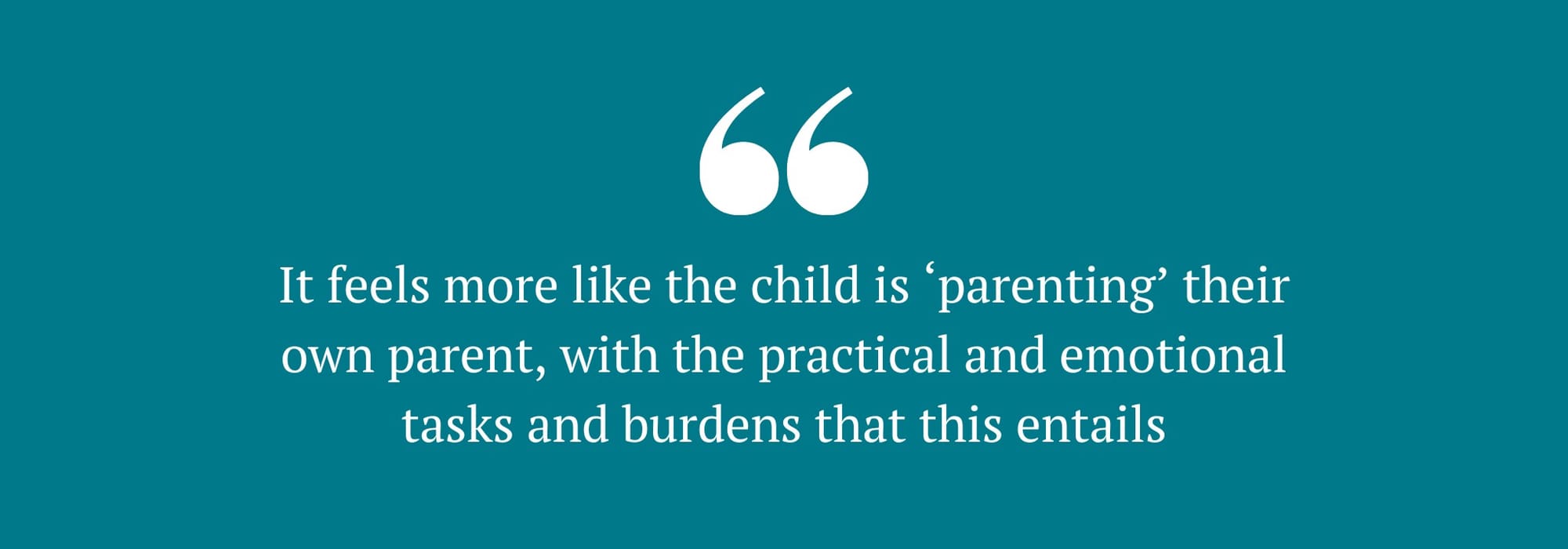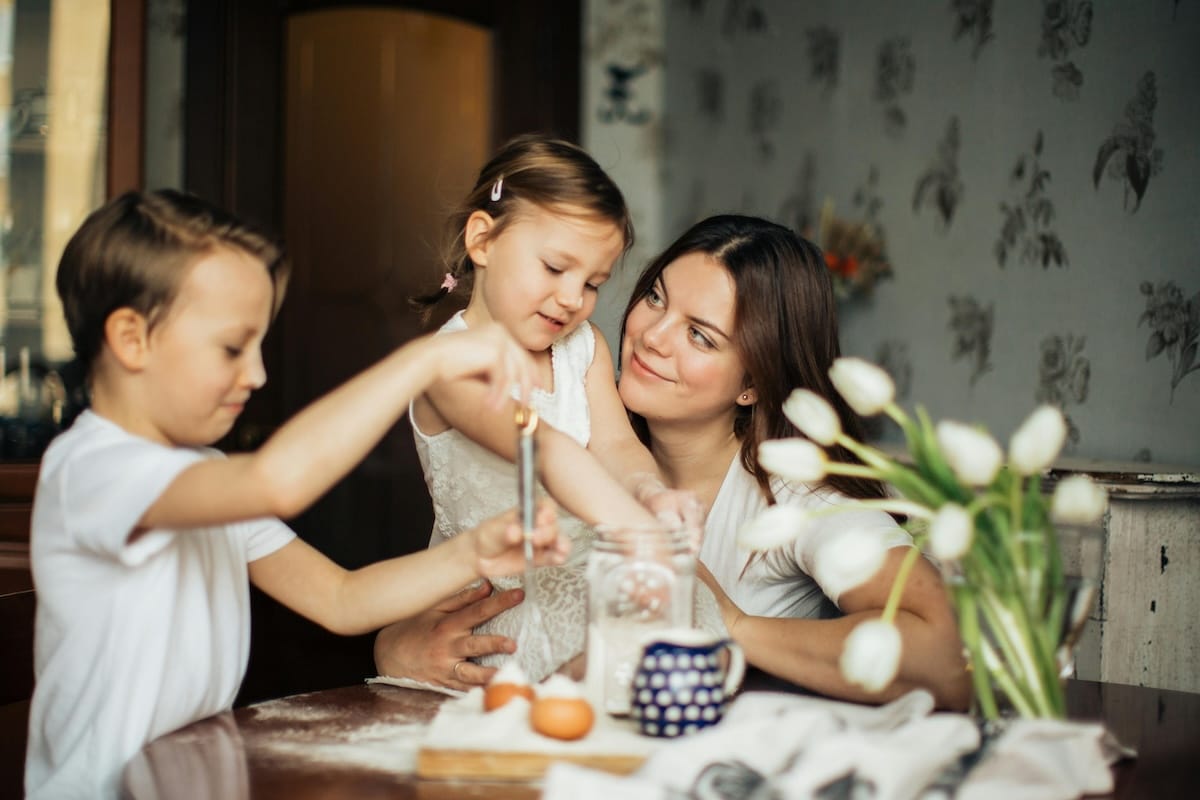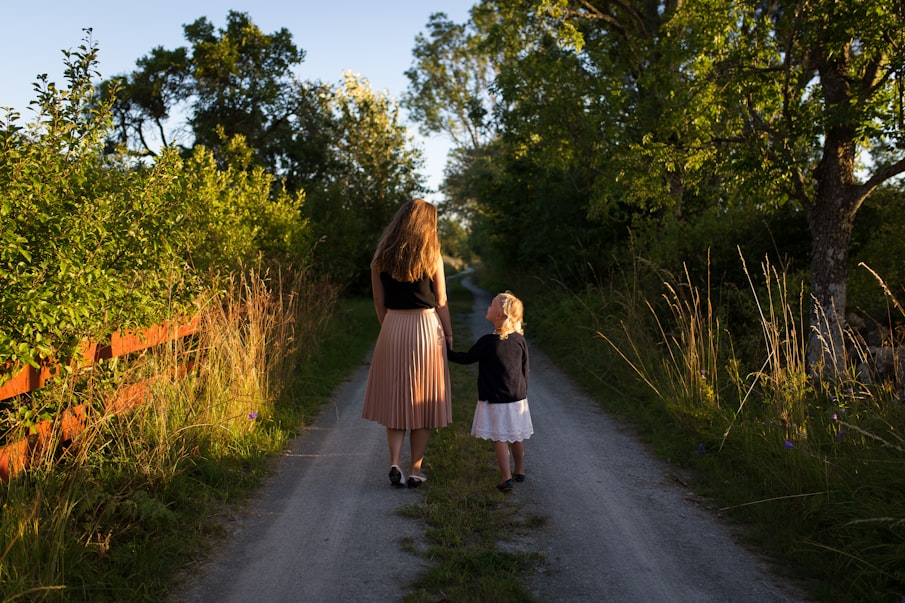Our relationships with our parents can be complex. Yet, many of us know we can count on them to provide emotional support, advice and guidance. But what happens when our roles become reversed?
It’s normal to have certain ideas and expectations of our relationships with our children. We are there to provide love and support, to make sure they are fed, safe, and in a stable environment where they can grow and mature without worry. But what happens when big life events happen to change that? What happens when we start looking to our children to help support their younger siblings, or even ourselves, when times are tough?
What is parentification?
Also known as parent-child role reversal, parentification can happen in different ways. These include instrumental parentification (when a child is expected to help with physical tasks, like looking after a younger brother or sister), or emotional (when they are expected to act as a mediator between parents or as a confidant).
Counsellor Georgina Sturmer explains more. “Parentification is a type of role reversal when a child takes on a nurturing, supportive role towards their parent. It goes beyond the reciprocal sense of care and compassion that we would expect to see in a family. Instead, it feels more like the child is ‘parenting’ their own parent, with the practical and emotional tasks and burdens that this entails.”
Why does parentification happen?
Parentification can happen slowly over time, or suddenly due to changes in circumstances or big life events. Both children and teens can experience it. What may start out as a parent intending to lean on their child for a little while to help with a specific event like a new baby being born or a divorce, can change into a pattern that may be hard to break. Sometimes, if children volunteer to help, it can be difficult to remember that they are still young and shouldn’t have too many responsibilities for too long.
Georgina reveals more about why we may lean on our children at times. “On a practical level, a parent with additional needs might find it difficult to meet the needs of their own child, especially if they are lacking in additional support. On an emotional level, a parent might lack the emotional resources or maturity that we need in order to look after our children. This might be the result of their own emotional wounds from childhood, or past trauma from life events or previous relationships. Or we might be re-enacting our own childhood if we were parented by a stifling or controlling parent.”

How do I know if I am accidentally parentifying my child?
The signs may not always be as clear as we may expect. Accidental parentification can happen, especially when we are feeling unsupported, stressed, or overwhelmed. But what if you are worried you may be putting too much pressure on your child? There are four key areas we can keep an eye on to help us figure out if we may be putting more expectations and responsibilities on our children than we may realise.
“If you are worried that you are accidentally parentifying your child, tune-in to their emotions and behaviours,” Georgina says. “Do they seem to be in keeping with their age and stage of development? Or do they seem more independent, or worldly, or autonomous than you might expect?
“Consider the role that you expect them to play. Does it go beyond the usual household chores? Are you expecting them to do the lion’s share of practical tasks at home? Are you leaning on them for emotional support for yourself?
“Reflect on the boundaries that exist within your family. Do you and your child have a clear understanding of what you can expect from each other, and do these boundaries feel appropriate? Think about whether your child asks for support. Parentified children often suppress their own needs and emotions.”
Is parentification always bad?
Research suggests that children who experience parentification towards a brother or sister, or who see their parents in a positive light, can experience long-term positive effects. A study published in the Journal of Child and Family Studies in 2022 suggested that parentification may give some children feelings of competence and self-efficacy, which can help them develop positive feelings of self-worth and self-image over time.
It can also have positive impacts on a child’s levels of independence, Georgina says. “Parentified children are often encouraged to be independent at a young age. This can be helpful in some circumstances, as they develop practical, independent skills.”
While there can be some positives, it’s still not recommended to deliberately parentify children. Research suggests that early childhood development is the foundation for our later lives. It shapes our behaviours, emotional development, and abilities to learn, manage stress, and maintain relationships. Some experts warn that, when we put too many responsibilities on children too young, this can lead to a need for perfectionism and setting unachievable high standards for themselves. Over time, too much pressure can lead to stress and anxiety.
How can I stop parentifying my children?
If you’re worried you might be parentifying your children, there are steps you can take to change things. Knowing what signs to look out for can be vital in helping you redefine what healthy boundaries and age-appropriate responsibilities look like.
Georgina suggests that we face things head-on. “Tackle what’s going on. Start thinking about roles and boundaries within your home. How can you adjust your responsibilities and actions so that everyone is playing an appropriate role?”
Working with a professional can also be a huge help. “Explore the root cause. Therapy can be a helpful way to explore the roots of these behaviours, and challenge our relationships with our family and our children,” Georgina explains. “Support your child. Give your child opportunities to explore how they feel about the situation, and to experience the carefree, creative side of being a child. Play with them, and help them to understand that you are the adult and that you will look after them appropriately.”

Therapy can provide a safe space for you to talk through your concerns and worries without fear of judgement. Therapists can help you to examine and identify unhealthy coping mechanisms and behaviour patterns, learn new, healthier ways of coping, and make positive, sustainable changes for you and your child.


Comments